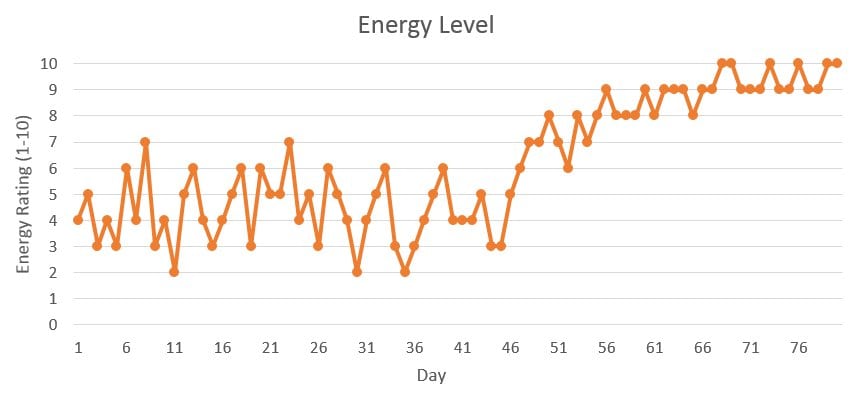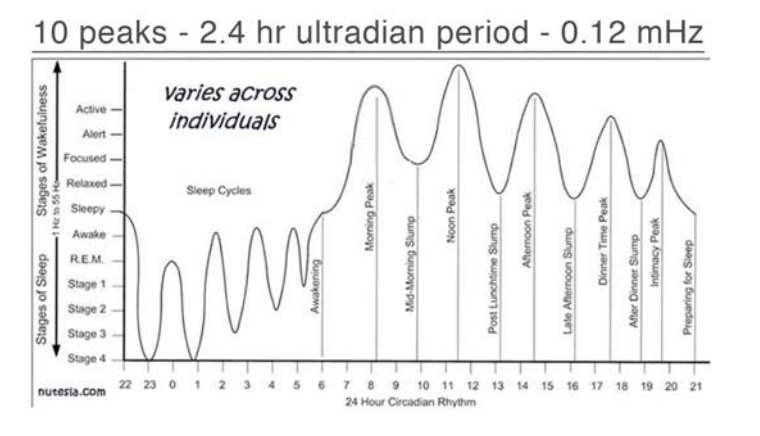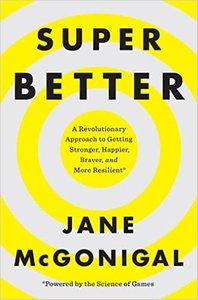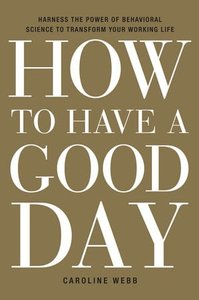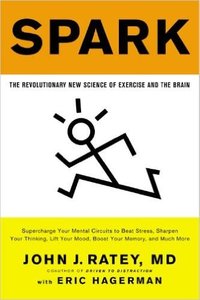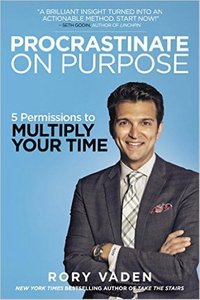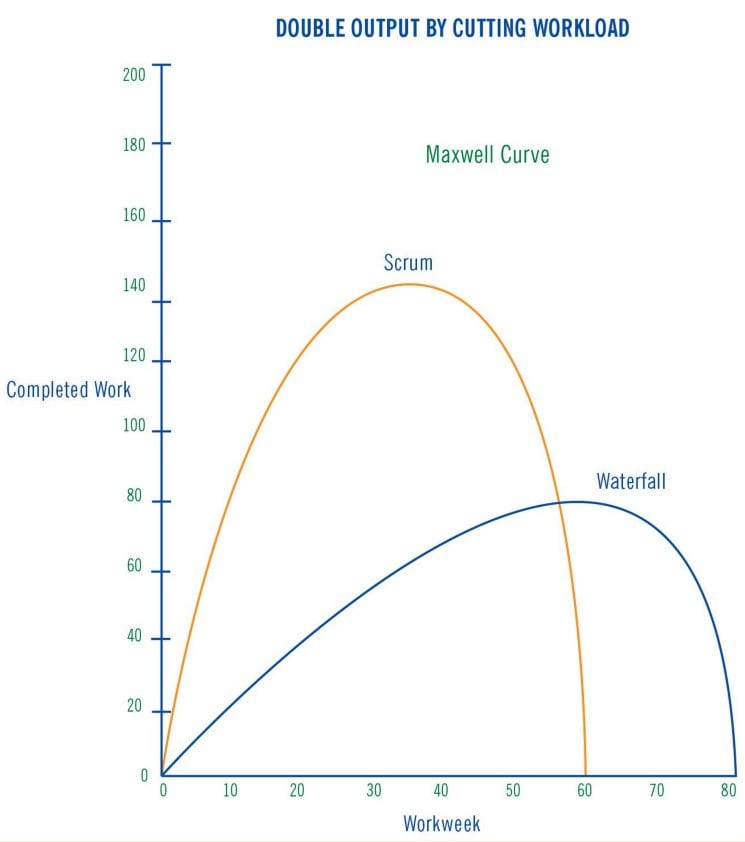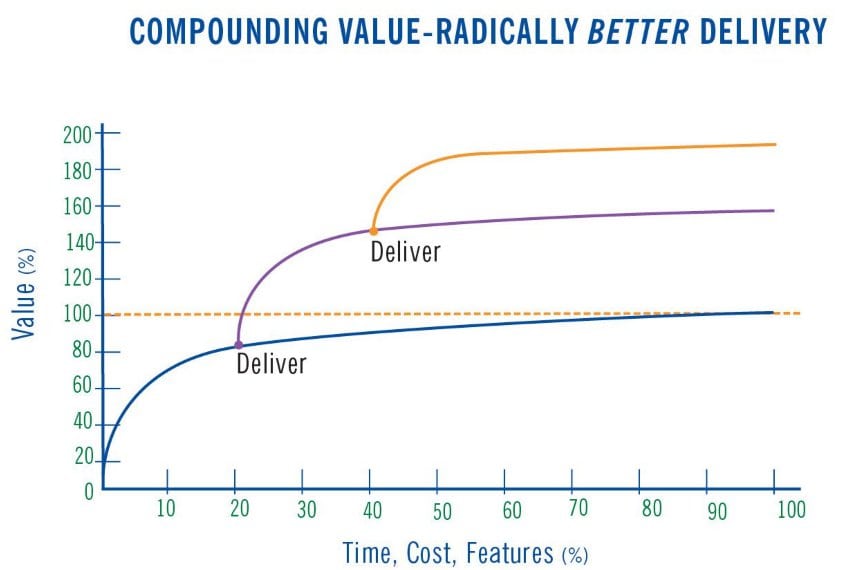A few months ago I was experiencing sporadic energy levels throughout the week, so I decided to subjectively measure my energy on a scale of 1-10 each morning and afternoon, then average the two. As Peter Drucker said: “What gets measured gets managed”. After months of experimentation, I found six habits that enabled me to M.A.N.A.G.E. my energy levels between a 8-10 rating for 3 weeks .
Morning Meditation
Meditate first thing in the morning.
Why?
A 2011 Harvard study found that an eight-week mindfulness meditation program made measurable changes to brain regions associated with memory, self-awareness, empathy and stress. With increased memory you are more likely to stick to your goals. With increased self awareness you are more likely to notice the things that take you off track and derail your energy. Having increased empathy improves your social interactions (an obvious energy booster). Lastly, with an increased ability to manage stress you prevent mental exhaustion and reduce the likelihood of burnout or depression.
If you’re new to meditation I recommend starting with guided meditation. Here are two smartphone apps that can help: headspace or calm.
Active Unfocus
Our minds go through an ultradian rhythm of focus night and day. At night, our ultradian rhythm determines when we experience REM sleep (the active part of sleep when we consolidate memories). During the day, our ultradian rhythm determines when we can achieve a state of heightened focus.
This is a typical 24 hour ultradian rhythm of mental focus (source):
During waking hours we experience high points that are similar to the REM phase we experience at night – sporadic and unfocused. If we attempt to stay focused during these times (a time when our minds naturally want to unfocus), we will rapidly drain our mental energy reserves. Therefore, it is wise to schedule in periods of ‘unfocus’ during these times. As per the graph, I have found these ‘unfocused’ periods to occur every 3 hours after waking. If I wake at 6:30am, I should plan ‘unfocus’ periods at 9:30am, 12:30pm, 3:30pm, 6:30pm and 9:30pm.
Here are my favorite ways to unfocus and ensure my focus is heightened when it is time to re-focus:
- Mindfulness walks in the morning (going for a walk and simply noticing the sight and sounds, while letting go of any thoughts I may have).
- Running around 12:30pm and getting a dose of brain derived neurotrophic factor (natural protein that you body produces when you do aerobic exercise – increases learning and creativity throughout the day). For more details read my summary of the book ‘Spark’.
- Socializing with friends in the afternoon. Taking time to inquire about someone’s day or congratulating them on a recent accomplishment. This can include texting, social messaging or meeting in person.
- Listening to music, podcasts or an audiobook in the evening.
Night Time Ritual
Night time can be your time to catch up on TV shows or surf the internet. However, if we aren’t careful these activities will extend our waking time and prevent a good night’s sleep. Failing to get a good sleep (7-9 hours) can have the same effect on your mental state as being intoxicated.
“Most people can’t get to sleep without some wind-down time, even if they are very tired, so executives may not doze off until 2 in the morning. If they average four hours of sleep a night for four or five days, they develop the same level of cognitive impairment as if they’d been awake for 24 hours—equivalent to legal drunkenness.”
- 2006 Harvard Business Review magazine interview with Dr. Charles A. Czeisler, the Baldino Professor of Sleep Medicine at Harvard Medical School (source)
To ensure optimal sleep, I practice a N.I.G.H.T. time ritual:
- Note – write down whatever is on your mind. Dump any to-do’s, worries or problems that you’re thinking about. This will reassure you mind that you will take care of things tomorrow and allow you to sleep soundly.
- Intention – set the main intention for tomorrow: the one thing if done well will make the day a success. Setting your intention the day before allows you to hit the ground running the next morning. It also allows you to come up with creative ideas while you sleep (the mind makes lateral connections as it consolidates memories during REM sleep).
- Glasses – wear yellow tinted glasses to block blue light. Exposure to blue light (lights in your house, computer screen, smartphone, iPad, TV) prevents you from releasing melatonin (a hormone you naturally produce to help you sleep). This 2014 study showed 20% reduction in melatonin by being exposed to blue light.
- Hold off Eating – save your appetite for the morning. This study shows that eating late releases a hormone called C-peptite which reduces the level of melatonin.
- Thankfulness – be thankful for the positive interactions you had during the day and any small wins you had. Take advantage of the peak-end rule: we recall experience by remembering the peak moment and the way it ended. For more on this watch my video summary on the book “How to Have a Good Day” by author Caroline Webb: bit.ly/1QJYTvF
Avoid Energy Killers
There are a few things that are sure to kill your energy. I call these things S.H.O.T.S. to your personal energy levels.
- Sitting for long stretches of time shuts down your metabolism and turns off your brain.
- High Glycemic Index foods. Eating high GI foods such as refined sugar and processed grains spike your blood sugar. As per Dr. Kelly McGonigal in the Willpower Instinct: “In the long term, blood sugar spikes and crashes can interfere with the body’s and brain’s ability to use sugar— meaning that you could end up with high blood sugar, but low energy (as is the case for the millions of Americans with type 2 diabetes).”
- Overeating taxes your digestive system, causing your body to divert precious energy from mental processing to digesting food. To combat this, stop eating when approximately 75% full – feeling satisfied but not entirely full. It’s important to remember that the feeling of being ‘full’ has a 30 minute delay, so eat slowly and take breaks while eating.
- Talking with negative people. Talking with people who gossip and complain drains my energy faster than anything. It’s hard to not be influenced by them and think like a cynic. Identify these negative people and avoid them like the plague (if you can…).
- Solitude. It is important to avoid negative people but that doesn’t mean you should avoid people in general! Leave the house, go to a cafe and be around people. If you work in a office, make sure you take time to mingle with coworkers. I like to work in solitude for most of the day, but if I don’t interact with people during the day, my sleep is terrible and my energy is dramatically lowered the next day.
Gameful Mindset
When you play a game you are volunteering to be challenged. You look at obstacles as an opportunity for personal growth. You seek out small wins throughout your quest and get excited when facing big challenges (big challenges = big opportunities for growth). Approaching your day with a ‘gameful’ mindset makes you more resilient and optimistic throughout the day. For more on a gameful mindset watch my video summary of the book “SuperBetter” by Jane McGonigal: bit.ly/21Ir6un
Eat for Energy
Protein in the morning
According to Dr. Jack Kruse you should consume a large amount of protein within 30 minutes of waking if you want to optimize your leptin levels – the hormone responsible for regulating your metabolism/energy levels. To get adequate amount of protein try eating 30-75 grams of organic eggs, grass-fed meat or wild salmon. Alternatives include whey or plant based protein shakes.
Fat and Veggies during the day
Eating primarily saturated (butter, coconut oil, egg yolk, etc.) and monounsaturated fat (olive oil, avocado oil) with fibrous non-starchy vegetables (salad, broccoli, cauliflower, asparagus, brussel sprouts, etc.) stabilizes my blood sugar throughout the day and gives me all the nutrients I need to perform optimally. Eating this way allows me to avoid the afternoon crash. If for whatever reason I feel lethargic during the day I supplement with salt and MCTs (this is simply what I do – I’m not a doctor, so don’t make adjustments to your diet before consulting your doctor). I supplement with salt since my sodium levels are quickly depleted on a high fat diet. I consume MCTs (medium chain triglycerides – a derivative of coconut oil) because they are easily converted to ketones in the liver (ketones are an alternate fuel source for the brain).
Oh, and if you think saturated fat is bad for you, think again. Research over the last 20 years has concluded that saturated fat does not lead to heart disease and is actually essential to your health. Tim Ferriss has a great article on saturated fat: bit.ly/1T9iGeb
Carbs in the evenings
If you are going to eat carbohydrates eat them later in the day. In fact, eating high glycemic carbohydrates a few hours before bed may help you fall asleep faster according to this study.
Years of research and months of testing has allowed me to better M.A.N.A.G.E. my energy levels and remain a high level of focus each day. The next time you feel your energy levels getting low just remember to meditate in the morning, actively unfocus at 3-hour intervals, practice a night time ritual for optimal sleep, avoid the five S.H.O.T.S to your energy, adopt a gameful mindset and eat for energy (protein in the morning, fats and veggies during the day, carbs in the evening).
One final thing: drink lots of water! Never go thirsty.
Stay energized!
